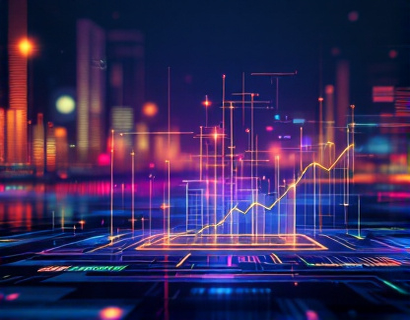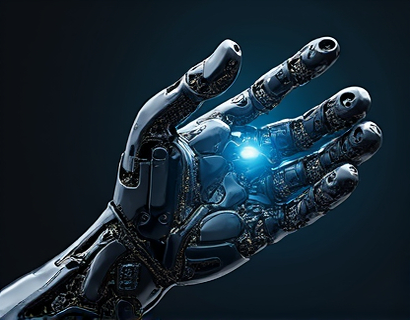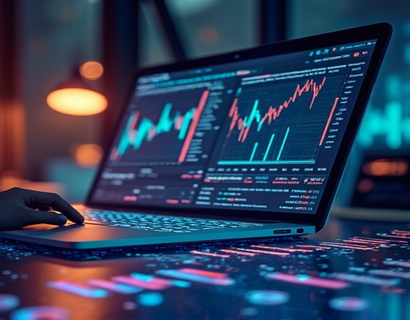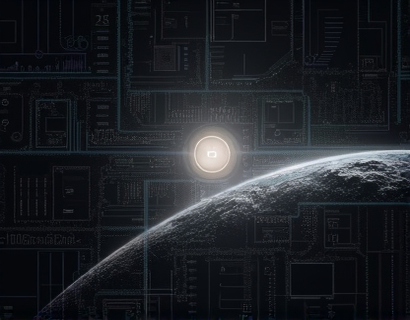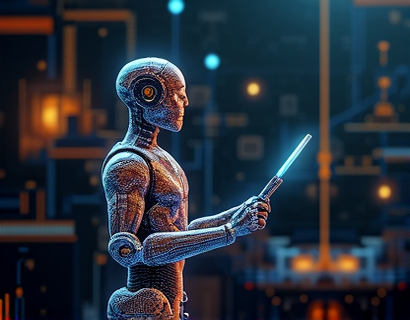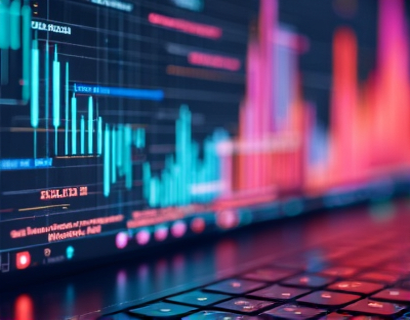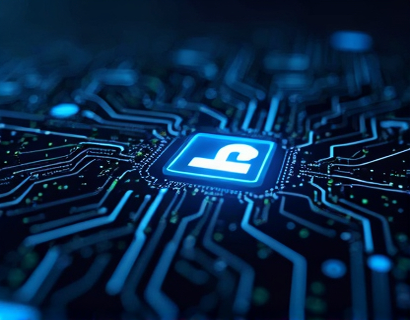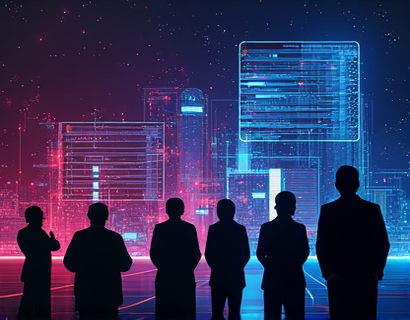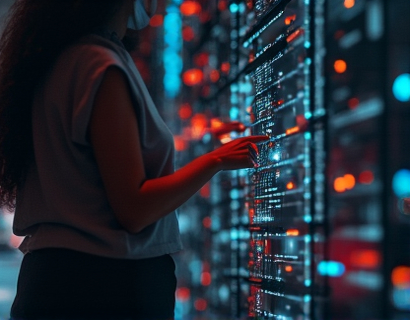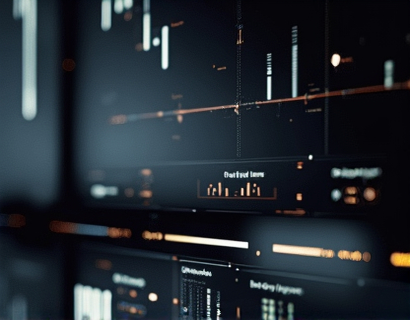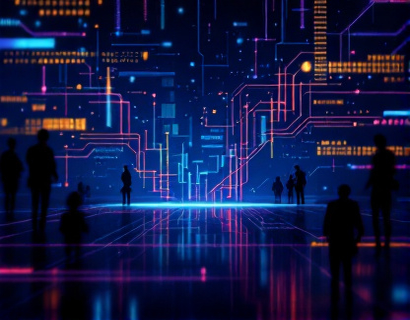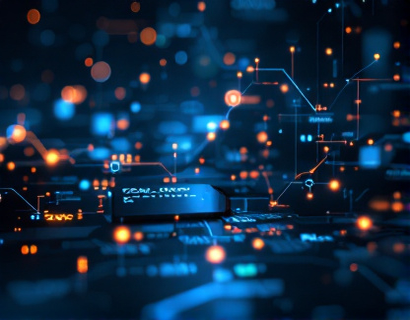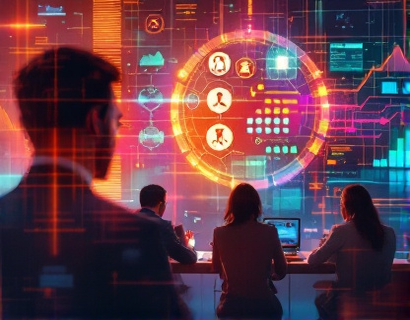Revolutionizing Digital Experiences: The Synergy of Crypto and AI
The intersection of blockchain technology and artificial intelligence (AI) is giving rise to a new era of digital interactions, transforming the way we engage with online platforms and services. This synergy is not just a technological curiosity but a powerful force that is reshaping the digital landscape, offering unprecedented opportunities for innovation and growth. For tech innovators and early adopters, understanding this convergence is crucial to staying ahead in the rapidly evolving tech world.
The integration of blockchain and AI is creating more secure, efficient, and personalized digital experiences. Blockchain's inherent properties of transparency, immutability, and decentralization, combined with AI's capabilities in data analysis, pattern recognition, and autonomous decision-making, are paving the way for next-generation tech solutions. This article delves into how this fusion is revolutionizing various aspects of the digital ecosystem, from user interactions to business operations, and provides insights for those looking to leverage these technologies.
Enhancing Security and Trust
One of the most significant impacts of combining blockchain and AI is the enhancement of security and trust in digital transactions. Blockchain's decentralized ledger ensures that data is tamper-proof and transparent, reducing the risk of fraud and cyber attacks. AI, with its advanced analytics and machine learning algorithms, can detect and mitigate potential security threats in real-time. This dual approach creates a robust security framework that users can trust, fostering greater adoption of digital services.
For instance, in the realm of financial transactions, blockchain ensures that every transaction is recorded and verified, while AI can monitor these transactions for any anomalies or suspicious activities. This combination not only secures the transaction process but also builds user confidence, encouraging more people to engage in digital economies.
Personalization and User Experience
AI-driven personalization is already a cornerstone of modern digital experiences, and when paired with blockchain, it becomes even more powerful. Blockchain can ensure that user data is securely stored and managed, giving users greater control over their personal information. AI algorithms can then use this data to create highly personalized experiences, from tailored content recommendations to customized product offers.
Consider a digital platform that uses blockchain to store user preferences and AI to analyze this data and predict user behavior. The platform can offer a seamless and personalized experience, from the moment a user logs in. This not only enhances user satisfaction but also increases engagement and loyalty, as users feel more connected to the service.
Decentralized Applications and Smart Contracts
Decentralized applications (dApps) powered by blockchain and AI are redefining the way applications are built and operated. Smart contracts, self-executing contracts with the terms directly written into code, are a key component of this revolution. When combined with AI, smart contracts can automate complex processes, ensuring that all conditions are met before executing a transaction. This reduces the need for intermediaries, lowering costs and increasing efficiency.
For example, in the supply chain industry, a dApp can use AI to predict demand and optimize inventory levels, while smart contracts automatically execute purchases and payments based on predefined criteria. This not only streamlines operations but also enhances transparency and trust among all parties involved.
Data Ownership and Privacy
The integration of blockchain and AI is also addressing critical issues of data ownership and privacy. Traditional centralized systems often leave users vulnerable to data breaches and misuse. Blockchain provides a decentralized alternative where users have sovereignty over their data. AI can further enhance this by enabling users to manage and monetize their data securely.
Imagine a scenario where users can choose to share specific data points with applications in exchange for tokens or other incentives. AI can help manage these data sharing agreements, ensuring that privacy policies are enforced and that users are compensated fairly. This model not only empowers users but also creates new revenue streams for content creators and data providers.
Innovative Business Models
The convergence of blockchain and AI is giving birth to innovative business models that were previously unimaginable. For instance, tokenized economies are emerging, where digital tokens represent value and can be used for various transactions within a platform. AI can optimize these economies by analyzing market dynamics, predicting trends, and adjusting token values in real-time.
Another exciting development is the rise of decentralized finance (DeFi) platforms, which leverage blockchain for financial services such as lending, borrowing, and trading. AI can enhance these platforms by providing sophisticated risk assessment tools, fraud detection systems, and personalized financial advice. This creates a more inclusive and accessible financial ecosystem.
Challenges and Considerations
While the potential of blockchain and AI is vast, there are several challenges and considerations that tech innovators and early adopters must be aware of. One of the primary challenges is the technical complexity of integrating these technologies. Developing robust and scalable solutions requires expertise in both blockchain development and AI algorithms.
Another consideration is the regulatory landscape. As these technologies evolve, regulatory frameworks are still catching up. Compliance with data protection laws, anti-money laundering regulations, and other legal requirements is essential to avoid potential legal issues. Additionally, the energy consumption associated with blockchain, particularly proof-of-work systems, is a growing concern that needs to be addressed.
Future Prospects
The future of blockchain and AI is bright, with numerous possibilities on the horizon. As technology advances, we can expect more seamless integration and innovative applications. The development of more efficient consensus mechanisms for blockchain, such as proof-of-stake, will reduce energy consumption and make these systems more sustainable. AI advancements, particularly in areas like natural language processing and computer vision, will further enhance the capabilities of digital platforms.
Moreover, the rise of edge computing, which brings computation closer to the data source, will complement the strengths of blockchain and AI. This combination can lead to faster, more responsive, and more secure digital experiences, especially in industries like IoT and autonomous systems.
Conclusion
The integration of blockchain and AI is not just a technological trend but a transformative force that is reshaping the digital ecosystem. For tech innovators and early adopters, embracing this synergy can lead to significant advantages, from enhanced security and personalization to new business models and opportunities. While challenges exist, the potential benefits are immense, making it a journey worth undertaking. By staying informed and proactive, these pioneers can play a pivotal role in shaping the future of digital interactions.



